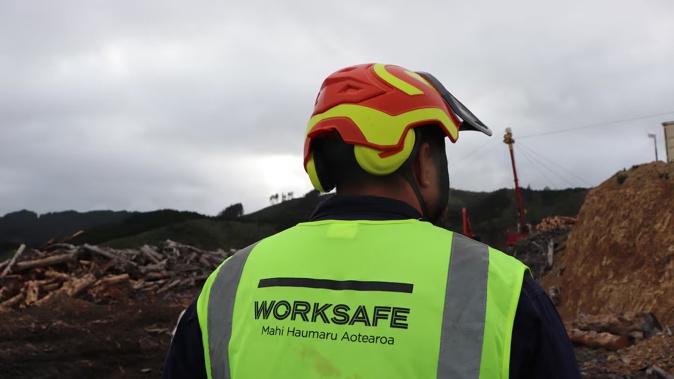
Forestry had the highest fatality rate of any sector in 2024, prompting new safety guidelines in the hopes of decreasing harm.
WorkSafe data shows three forestry-related injuries were investigated from 2021, 2022 and 2024 in Northland.
This year, an investigation was also opened into the forestry-related death of a man in Taipuha, west of Waipu in April. The outcome is yet to be determined.
And in June, another person was airlifted to hospital after an accident involving tree-felling near Kaikohe, also prompting an investigation.
Whangārei’s Forest Protection Services managing director Kevin Ihaka said the changes were “well overdue”.
The Approved Code of Practice highlights WorkSafe’s expectations for managing health and safety within the sector.
This time around, the guidelines were more relevant and a “lot less prescriptive”, Ihaka said.
He felt the new approach allowed managers to control risks on the ground.
“We’re such a dynamic environment, it’s nature,” Ihaka said.
One day they might have risk management in place but the next day the winds could change direction or the temperature could drop.
“The environment changes so quickly, we have to be able to adapt.”
Ihaka said health and safety was “very much” taken seriously in Northland.
“I mean, if you’re in the forestry industry and you don’t take safety seriously, you’re not going to last long.”
He said forestry was dangerous but also under great public scrutiny.
Safety was deeply embedded throughout the supply chain, he said.
“... And I think the people that invest in our industry also want to know they’re investing in an industry that’s safe.
“No one wants to invest in an industry where you’re putting lives at risk.”
Ihaka felt the new approach opened up important discussions.
“Having the discussions is actually part of having the solution [to safety],” he said.
Following an independent review into forestry safety in 2014, there had been a lot of progress around safety, he said.
Looking back at the industry 20 years ago, he said there were new machines and practices in place to protect workers.
Forest Protection Services had been part of developing the guidelines.
“There is always a lot of discussion between the regulator and contractors and employees, but I think we’ve landed in a good place.”
He said generally speaking, the feedback from the changes was “overwhelmingly positive”.
WorkSafe chief executive Sharon Thompson said the new guidelines were easier to understand and more up-to-date.
She said forestry had a fatality rate 20% higher than other industries, and the hope was that the new code would help reduce the level of harm.

WorkSafe chief executive Sharon Thompson hopes the simplified and updated Code of Practice will reduce harm within the forestry industry. Photo / WorkSafe
WorkSafe data shows forestry had the highest fatality rate of any sector in 2024.
Despite Northland having 10.5% of New Zealand’s total harvest, Forest Industry Safety Council data showed it still made up 15% of new forestry-related ACC claims.
Thompson said it was a “shared goal” within the industry to reduce harm.
“We want everyone to come home from work healthy, happy and safe, and we all need to keep working towards that.”
Last year, WorkSafe ran a total of 14 workshops across the country with stakeholders, including unions and frontline workers to help inform the new guidelines.
She said inspectors would be out and about during the spring and summer seasons to help inform companies about the new guidelines.
She hoped that through engagement, people would better understand the requirements and avoid enforcement action.
“We would like to reduce the rate of harm across the industry, and we are one part of the system, so it’s definitely something we would like to see in the long term,” she said.
But Thompson said the responsibility for managing the risks in forestry sat squarely with the business first and foremost.
Her comments come after Kohurau Contracting were ordered to pay $150,000 after a worker lost four fingers in a workplace accident.
A Northland logging company was also ordered to pay more than $70,000 in costs in 2024 for failing to ensure equipment was maintained.
Forest Industry Safety Council data showed that between 2013 and 2023, 36% of fatalities were in smaller-scale forestry, such as woodlots, while 64% were in corporate forestry.
Brodie Stone covers crime and emergency for the Northern Advocate. She has spent most of her life in Whangārei and is passionate about delving into issues that matter to Northlanders and beyond.
Take your Radio, Podcasts and Music with you









